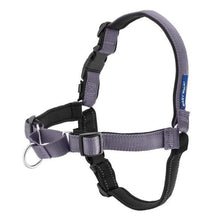German Shepherd Home Alone: Preventing Boredom And Anxiety

German shepherds are loyal dogs that get very attached to their families. They’re also active, smart, and curious, which can make leaving them alone at home a challenge. But, leaving your dog behind is not impossible.
So, how can you help your dog manage by themselves when you can’t be there? Preparing them and then sticking to a schedule are the keys to their success.
How much time your dog can spend alone is not one size fits all. Several factors influence how a dog can manage being alone such as their age, activity level, personality, training, and how confident they are.
But, training a dog from a young age will help build their confidence, which will eventually make it easier for them to be left alone. Basic obedience skills and learning the rules of your home are also vital skills for them to learn for their safety and well-being.
Since German shepherds are an active working breed, they can get easily bored and develop destructive behaviors and anxieties when left alone for long periods. Some ways you can help prevent this include:
Keep up with their training
As mentioned above, training is very important for all dogs but especially those left alone. When they feel confident and are trained in the house rules, it will help reduce the possibility of them developing problem behavior.
Dog-proof your home
It doesn’t matter how trustworthy your dog is, accidents happen. Be sure that your home is dog-proofed and that all medications, cleaning products, trash, and chewing temptations are not within your dog’s reach. Be sure windows, gates, and doors are secure and that there is no way for your dog to escape.
Stick to a schedule
Dogs are creatures of habit and do best when they have a schedule. They seem to have an internal alarm clock and know exactly when they are supposed to go outside, eat, exercise, go for walks, etc. Sticking to their schedule helps them anticipate what is expected of them and reduces anxiety. Sudden changes to their schedule can cause them stress and they might need extra support, like a pet sitter or friend checking in on them during those times.

Exercise your dog before you leave
Be sure your dog has had enough exercise before you leave. Since you won’t want to feed them right before or after exercise for fear of bloat, this will take sticking to a schedule. Plan to spend quality time to burn off their energy so that when you leave they’re not frustrated or full of pent-up energy. This is one of the most important things you can do to prevent boredom, anxiety, and all the problematic behaviors that go with it.
Provide a safe space
Only you know if your dog is a danger to themselves and your home if you leave them alone. If they are, consider a heavy-duty large crate, kennel, exercise pen, or gate them off in a safe room while you’re gone. Be sure their space is secure and comfortable and doesn’t cause anxiety. If your dog is safe to free roam while you're away, be sure they can reach their bed or another restful place.
Provide playful distractions
Leave safe toys out for your dog. These should be toys your dog can’t destroy or eat and they enjoy playing with or gnawing on. Some interactive toys such as the West Paw Tux can be stuffed with food. Never leave rope toys or anything else out that your dog can swallow or choke on.
Leave the TV or radio on
The sound from the TV or radio can help maintain a familiar environment and be a distraction from the silence of an empty home. Some dogs even enjoy watching the TV to distract themselves, hence the DogTv channel.

Hire a dog walker or pet sitter
Consider hiring a dog walker or pet sitter to check in on your pet can give you peace of mind as well as make your dog happy. If you don’t trust anyone to walk your dog, consider having someone come over to let them out in the yard, spend some time playing with them, and feed them a treat. A sitter can be a great solution when spending long hours alone and is an alternative to doggy daycare.
Get a second dog
Adding a second dog to your home is not the solution for all pets and owners. In some situations, it can even cause problems. But for some dogs, having a dog friend to keep them company and play with reduces their anxiety over being isolated is a great way to keep them occupied while you’re away.
Manage your expectations
Leaving your dog alone also requires you to manage your expectations. German shepherds are an active herding breed and they don’t do well when isolated for long periods or when going with their need for exercise and mental stimulation is unmet.
They require lots of social interaction, time, and attention throughout all their life stages. How long your dog is capable of being on their own depends on many factors and all dogs are different.

The more active and higher drive the dog, the less time they can spend unsupervised. A simple guideline by age is:
Puppy 1-2 hours
Adolescent 4 hours
Adult 4-6 hours
Senior 6 hours
Geriatric 4-6 hours, depending on their health needs
Consider supplements
If your dog has a more anxious personality, you may want to consider calming chews or cbd oil to help them relax when you leave. There are many products to choose from and some work really well on certain dogs.
Have an emergency plan
Be sure that someone who knows you and your pets has a key to your home in case you have an emergency and can’t get home. A great way to do this is to exchange keys with a friend and plan to be there for each other’s dogs, if it's ever needed. Leave directions for feeding, medicating, boarding, and vetting your dogs in case of emergency.
We hope these tips help your dog safely navigate being left alone and calm and relaxed while you’re gone. As always, please feel free to share with your friends.
You might also like: How Long Is Too Long To Leave Your German Shepherd Home Alone?






















